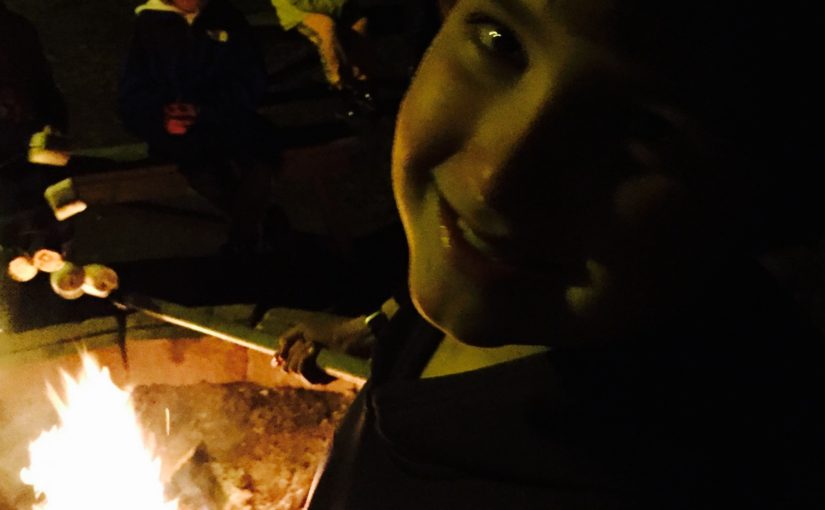In 2016 our son Peyton had a two-night outdoor education trip scheduled with his entire fifth grade class at a camp in Illinois. In preparation for the retreat, the school asked dads to volunteer to stay in the cabins with the boys overnight. My first instinct was, I’m all in; I love being a dad, and I want to be there for my son.
Leading up to the event, negative comments were shared about this volunteer mission and people told me not to go. It would probably be cold, rainy, and muddy. The kids would likely be all wound up or over-tired, misbehave, and would stay up too late. The accommodations would be miserable, dirty, and uncomfortable. I’d actually heard this from more than one person.
Fortunately, I trusted my instincts and decided that no matter how bad the report was, the right thing to do was to volunteer – and it was amazing! Peyton looked me in the eyes and thanked me for being there. This made it all worthwhile and nearly brought me to tears. I got to observe my son and his peers having so much fun; there was a beautiful campfire, a night hike through the woods, s’mores, and giggling kids having a wonderful time. Priceless moments that can never be replicated in this lifetime with that little boy. What if I missed out because of a bad report? Now I am actually in tears.
Numbers 13 tells the story where Moses sent several men to spy out the land of Canaan. The spies went as instructed, but depending on their point of view, their reports and responses differed.
First the favorable view and response that reflected faith in God. Caleb saw the goodness that God had been promising all along and was eager to continue toward that goodness in obedience.
27 And they told him, “We came to the land to which you sent us. It flows with milk and honey, and this is its fruit. 30 But Caleb quieted the people before Moses and said, “Let us go up at once and occupy it, for we are well able to overcome it.” (Numbers 13:27, 30)
Then the bad report. God had been promising he would take them to this land, and that he would be with them; they just needed to trust him. They shared an observation of adversity and ignored all that God had done thus far and chose to shrink in fear as a lack of trust in God’s plan.
Then the men who had gone up with him said, “We are not able to go up against the people, for they are stronger than we are.” (Numbers 13:31)
The same group of people witnessed the same events, but yet their individual responses varied greatly.
When the congregation heard the bad report, they decided that it would have been better to go back to Egypt to become slaves, or better to have died in Egypt rather than be there in the desert. On the opposite side, those who put their trust in God responded in in a faithful manner.
If the Lord delights in us, he will bring us into this land and give it to us, a land that flows with milk and honey. Only do not rebel against the Lord. And do not fear the people of the land, for they are bread for us. Their protection is removed from them, and the Lord is with us; do not fear them.” (Numbers 14:8-9)
Numbers 14 reflects how serious God is with regard to how he wants us to trust him in all things. Those who chose not to trust him were severely punished, and those who did trust him were greatly rewarded.
But my servant Caleb, because he has a different spirit and has followed me fully, I will bring into the land into which he went, and his descendants shall possess it. (Numbers 14:24)
After considering Numbers 13-14, this pattern shows for us as humans as we are tested in our faith:
- We’re on a certain path, unsure as to what is ahead.
- There are hardships and unknowns, and even some bad reports.
- There is evidence of God’s faithfulness and goodness; a call to trust him.
We have free will and can choose to either listen to the bad reports, live in fear and give up, or we can trust and obey and live our lives! No matter what circumstances arise: Through the death, burial and resurrection of Jesus Christ, we have eternal hope.
Lessons learned and questions to consider:
- We need to be careful with how we share our observations. If we see something potentially negative, how much should we share this information?
- Consider the source of the bad report. Did this person witness/experience the negative thing firsthand?
- Even with a substantiated bad report, what are the opportunities that may be hidden within?
Today’s reading: Numbers 14; Psalm 50; Isaiah 3–4; Hebrews 11
